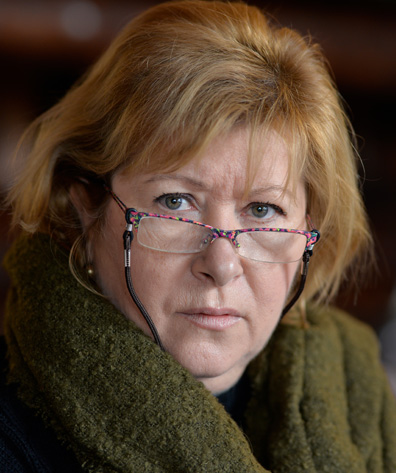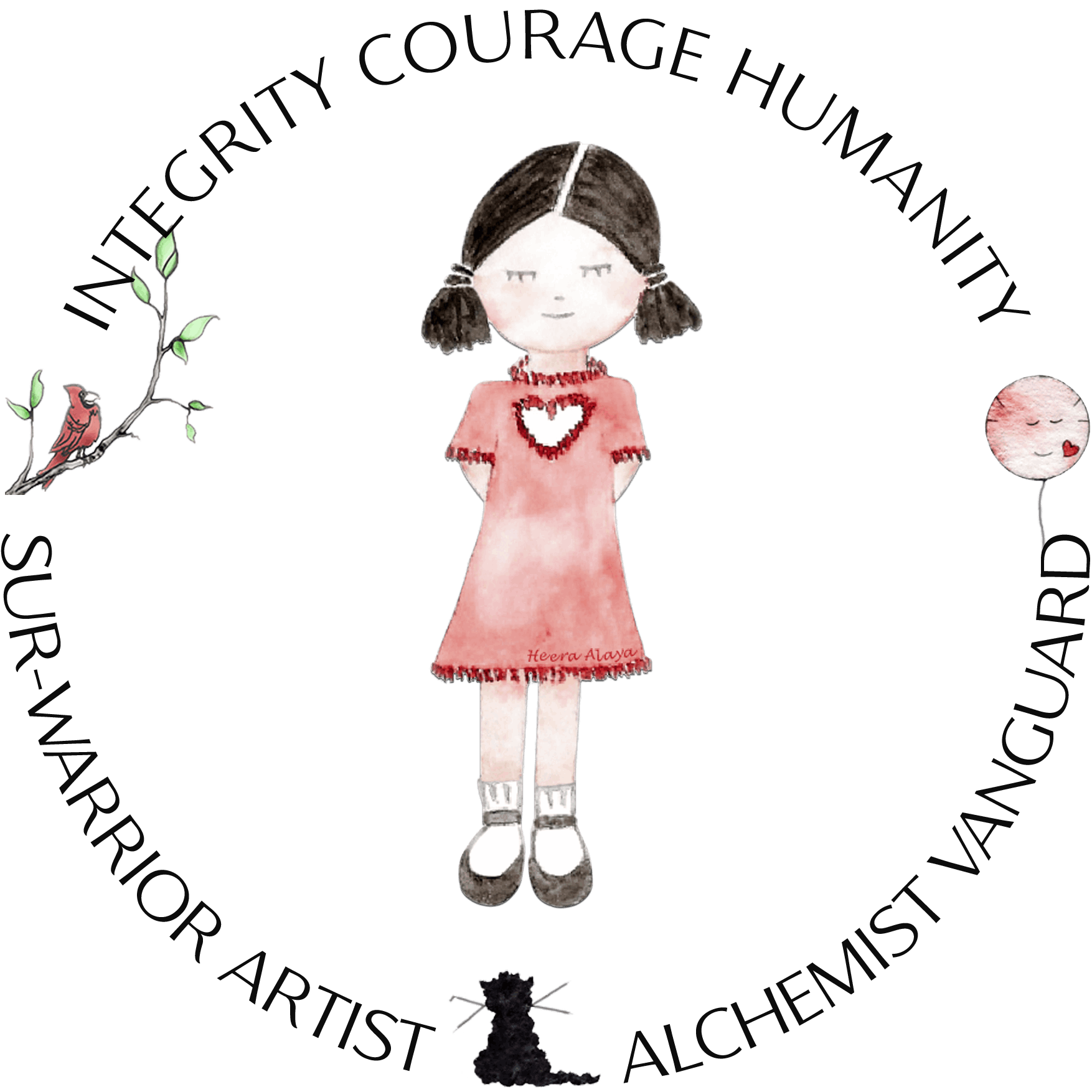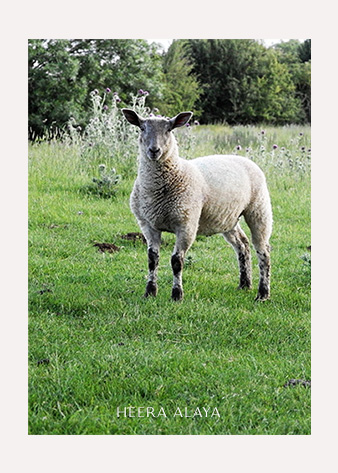
“Outrage is essential to fight injustice.
If I find injustice and I can do something
to change it, I must do it.”
IANA MATEI
Activist and founder, Reaching Out Romania, RO
August 28th, 2022
OPEN WINDOWS | In Conversation
Romanian activist Iana Matei is a psychologist by profession and the founder of Reaching Out Romania, an organisation that finds and rehabilitates victims of forced prostitution. Ms Matei’s life is marked by an unwavering commitment to acknowledgement, empathy and embrace, shepherding life into rescued trafficked victims. Among other honours, Ms Matei was the 2006 recipient of the “Hero of the Year” award from the U.S. Department of State.
Heera Alaya: You say: “Trafficking is a consequence of unloved children.” Please elaborate on pre-existing vulnerabilities that make individuals susceptible to trafficking.
Iana Matei: I can speak only for Romania. Unlike children who experience love at home, children from dysfunctional families and juveniles left in the child protection system don’t experience love. Therefore, when a young man tells them: “I love you,” these vulnerable children immediately believe the trafficker and are effortlessly recruited. The lover boy method has been the most successful in recruiting for the last five to seven years.
How young are trafficked victims? And are victims of trafficking primarily female or male?
Trafficked victims are female and male, but we only work with girls. In our shelter, our safe house, the youngest victim is ten.
Where are trafficked humans sold?
In our case, all our Romanian female victims are sold into the sex industry. The boys we work with are also sold into the sex industry.
Are transgender people trafficked?
I couldn’t say, as we don’t have any case.
You speak about the lover boy strategy that traffickers employ. At what point—if ever—do the trafficked victims realise they were misled?
This is a very good question. Remember, these children come from dysfunctional families or the child protection system and have experienced ills of all sorts—physical, emotional and sexual abuse. These abused children are used to abuse, so they don’t see their abuse in the manner we do.
I know what you are saying as I relate to these abused children.
How does the cycle of abuse and gifts keep the victim confused and dependent on the trafficker?
These children have been hit before. Every time their trafficker hits them, he gives the girl [the trafficked victim] a lollipop or turns the table on her: “Look what you made me do [hit the victim].” The trafficked victim understands that she needs to work harder or do whatever the trafficker asks her. And she will do whatever is required of her because she is dependent on her trafficker, who says: “I love you.”
Is a trafficked victim isolated?
Victims are often isolated. And when they socialise, it’s not with whomever the victim chooses—trafficked girls have to engage with whomever the trafficker decides for them. Trafficked girls are also kept together because the older girls train the younger girls to be more obedient by sharing experiences: “My boyfriend is like this. My boyfriend is like that.”
Where are traffickers looking for victims?
[Traffickers look for victims] Mainly in the child protection facilities.
So, orphanages and care homes?
Yes. Traffickers are also in the schoolyards—they plant their recruiters in schools, and these guys stay there for ages. These recruiters comment and try to talk when these children come out at recess. Of course, in the beginning, the girls don’t respond. But after seeing the same individual for, let’s say, a month in your schoolyard, you know this person. Sometimes, a girl will respond, and the guy will ask them out for coffee or juice. The traffickers/recruiters are very good psychologists—they read the body language—who to target, and who to ask questions about their target.
Once a trafficker gets his target victim, he knows how to present himself as Prince Charming on the white horse, riding into the woods, protecting the girl [victim who is eventually trafficked]. This fairytale is a story vulnerable children want to believe because it’s something they don’t have.
You talk about a sense of fear traffickers instil in their victims to carry out their crimes. Please elaborate.
The trafficker manipulates his victim—according to his victim’s obedience—by feigning love or conveying the absence of it: “I don’t love you anymore.” In addition, the trafficker uses a guilt trip to let the victim know how unloved he feels when she doesn’t respond to his requests: “I have the impression that you don’t love me. If you loved me, you would do this [the trafficker’s demands].” So, the brainwashed-trafficked girl will go to extremes to prove her love.
Romanian victims are trafficked into the United Kingdom, Italy and Spain. What facilitates these trafficking routes?
Every country in Europe has Romanian victims, but trafficked victims are primarily concentrated in the UK, Italy and Spain. Traffickers move their victims—in summer, they take their trafficked victims to Spain and Italy because they are many tourists. In autumn and winter, traffickers move their trafficked victims to England or Belgium because traffickers have apartments.
Are the trafficked victims made to work in strip clubs and massage parlours?
In Spain and Italy, trafficked victims are made to work mainly in the street but also in massage parlours.
How does putting legislation in place help vulnerable victims?
All European countries must have the same legislation because traffickers in Romania recruit victims in Romania and transport and exploit them in other countries. We need joint investigations.
If you can believe it, we don’t have a minimum age of consent in Romania. (Also, paedophilia is not defined in the Romanian legislation, making things more difficult.). If a 13-year-old girl says yes to sex, she doesn’t know why she is saying yes. Nevertheless, the judge will take into consideration the fact this 13-year-old agreed. And her rape is not called rape because we do not have the minimum age of consent. We are now lobbying for the legislation.
Why doesn’t the legislation have a minimum age of consent and define paedophilia?
That’s an easy one—because there is no political will. We tried, lobbied, and brought psychology experts to establish a minimum age of consent—to make it 16 years of age, but some mysterious appeal came, and they agreed that the minimum age should be fourteen!
Shocking.
Yes. Politicians love young girls: the younger, the better.
Is this why the number of prosecutions remains abysmal?
Yes. Trafficking is a crime with high profit and low risk, and we keep it like this. We don’t want to reverse the equation. We should make it high risk, low profit.
Authorities do not confiscate traffickers’ money. The sentences are three years or maybe three months, depending on what the prosecutor wants. I am not talking only about Romania. In Belgium, for example, the sentence can go from a 400 euro fine—a joke when traffickers always have pockets filled with money— to up to three or four years [in prison].
It’s ridiculous.
Exactly.
India practices the caste system. The lowest caste is already marginalised, making them more vulnerable to crimes.
Yes, I know.
To what extent do cultural practices and corruption facilitate crimes?
A trafficker has a higher success rate by targeting girls in a poor community because he presents a beautiful story with a bright future, which everyone wants.
Cultural practices aren’t essential for trafficking, whereas corruption is definitely. And I am not saying this only for Romania. Trafficking and corruption are a perfect match because, unlike trafficking drugs, where you have only money for gaining, in human trafficking, you also have young girls. And for politicians, in addition to capital, they get young girls.
As an activist, how do you earn the trust of trafficked women?
I don’t think I ever fully earned their [rescued victims’] trust, but I am always there for them, good and bad. Victims are used to people turning their back on them. Of course, they have behavioural problems, so people often judge them for misbehaviour. The girls and I talk about this condescending attitude; we are upset but move forward.
I don’t know if the girls trust me, but they know I am always there for them. They see me as a pillar of strength, and that helps them. We often keep in touch with our girls after they leave the program. I encourage the girls to stay in touch with me because I want them to know that I care for them and that what I do is not just a job. Many of my rescued girls are married women with their own families and children. And now they tell me that whatever I did for them stayed with them. I am not aware of what I did then; I just did.
What is the starting point for rehabilitating victims who are clueless about life, living and the world?
Rehabilitation is in the basics—we give psychological and legal counselling and teach basic life skills, like how to brush their teeth, take a shower and care for themselves. We explain how to dress and how to present themselves. We teach these step-by-step life skills every day.
The shelter’s social workers are exposing the rescued girls to age-appropriate relationships, which is like a cultural shock. We take the rescued girls from one environment and put them in a new environment, and they tend to run away because they are terrified and don’t understand what is expected of them. So slowly, slowly, we have to introduce them to what we call a normal life and give them a chance, as any child should have.
Where does your biggest challenge lie in integrating women into society—working with rescued trafficked victims or us, a society that chooses not to accept the truth and trauma of trafficked victims?
No matter the verbal or physical violence demonstrated by the rescued girls, I understand their position—they have been abandoned and left out all their lives; it is very difficult for the girls.
My problem is with people in authority. We have people who are supposed to be specialists in key places who don’t understand or want to understand and treat rescued girls like lost cases; this frustrates me.
In society, we talk about trafficking and try to change the perception about these girls, but many comments are inappropriate: “They [trafficked victims] want it. Oh, she knew what she was getting herself into. Why did she need a boyfriend?” Well, because the trafficked victim is an adolescent.
How do you break conditioning—where, despite rescue and rehabilitation, the victim wants to return to the perpetrator, the trafficker?
We are trying to do that [break conditioning] by giving psychological counselling and cutting all old ways of life, including severing ties with all the people from their past [trafficked phase] and taking away their mobile phones. They use our mobile phones to make calls to their families.
Your work includes rescuing, education and reform. Please tell me about your other facet—lavender cultivation.
We have never received money from the government in the 20 years since I started the project (There is never money for social projects in Romania.). I knew we had to be self-sustained because fundraising takes time away from the girls. So when a good friend donated 50 hectares of land, we started a lavender farm. This project is conceived in a way that involves the rescued girls. We give each girl a piece of land and explain how she can run her own business. By engaging and learning skills, these girls can become entrepreneurs.
We currently have ten hectares of lavender from which we obtain essential lavender oil and make candles and soaps. Without alternatives, we cannot protect girls or help them become self-sustainable.
Have the girls taken to lavender farming?
Yes. Some girls love being in the lavender fields all day, while others enjoy candle making, painting glass holder holders (for candles), soap production, and lavender bouquet arrangements. It’s a matter of picking up talents and encouraging the young girls.
Do you sell your lavender products online?
Yes, we do sell online. Most people in Romania place their orders on WhatsApp. Anyone can order through our website and our Facebook page.
What makes people judge and reject victims?
Judging and rejecting are defensive mechanisms. Human trafficking is so brutal that it calls for action. And because this crime is too complicated, we say: “That cannot happen.” This denial excuses us from taking action.
When you acknowledge: “Yes, this [human trafficking] crime happens; it’s terrible, and I have to do something about it,” you suddenly have a problem in your hand, and you have to solve it. So it is easier to say, “This crime can’t be solved,” or, “Someone else will take care of that because I am not a specialist.”
Our judgments and rejections are also about our fear of failure. We tend to associate our failures with these girls, and we don’t like it. By failing to help vulnerable children, for example, and shifting the blame on children, we protect our peace of mind and self-image.
How can the younger generation be of help and find purpose?
I want people to look around because you always find someone needing help. And see what is in your heart—the golden nugget is within you. You can’t be happy if you don’t use that golden nugget. It may be the desire to work with children, elderly or disabled. Happiness comes with giving.
You fled Romania during the Romanian Revolution [December 16th, 1989 to December 25th, 1989], eventually returning to help three girls. What about this experience progressed to activism?
The plight of children [progressed to activism]. In 1999, the Romanian police asked me to bring sandwiches and clothes for three young girls—aged 14, 15, and 16 (short of six months); the girls told me they were sold and bought.
It took me a while to understand—I couldn’t comprehend how anyone could sell another person. What do you consider when establishing a price for a girl? Do you look at the physique; do you consider her memories, emotions, and intellect when fixing the price? Do you take her soul into account? Is selling girls just for your [traffickers] pockets and financial needs. I asked the girls three times, thinking they would give me different answers. I learned that each girl was sold for 200 lei [approximately 40 euros].
When I asked the police what was next for these trafficked girls, they informed me that the girls were free to go and could file a police complaint against their abuser. While the police talked to me, the girls signalled from behind: No. This small but significant action made me understand the severity of the situation: “If he [the trafficker] gets to know we are in the police station, he will kill us,” informed the girls. And these guys were violent, especially Albanians; they had guns. I found out later. This encounter began my journey of rescuing and rehabilitating trafficked girls.
Did these events compel you to move back to Romania?
I came to Romania for a holiday. I had started a program for street children in Australia. While on holiday in Romania, I learned there weren’t programs for Romanian street children. On return to Australia, each time I worked with street children, I thought: “What about the Romanian children?” I knew I had to come back to Romania to introduce programs that work for street children in Australia.
Do their parents ever go looking for them or not?
Some parents look for their daughters, while others are very ashamed to accept their daughters [trafficked victims] when they want to return home. Like the rest of society, families don’t understand how trafficking operates and the trauma the girl endures.
Family integration is not impossible. Parents with low education blame the girl. With family counselling—though it takes a while—parents understand that their child went through trauma and needs their support. Once parents and families understand the reality, the family is okay with accepting their daughter.
You have innate capacity and courage. Like sunflowers requiring direct, full sunlight to bloom, have any external experiences helped further develop your life capacity and courage?
My life changed through experiences. In our case, the sun is every girl who changed her life. Their [rescued victims] tenacity and resilience are the power. I know these girls have a chance in life, and they proved it, which makes me go further.
What role does your training as a psychologist play in your operations? You mentioned earlier that you don’t remember doing anything special for the girls; you do whether the girls realise it or not. Is serving without expecting who you are as a person, or is it partly thanks to your training as a psychologist?
It’s [serving without expecting] me, and my training as a psychologist helps my attitude and approach to life. I chose Psychology because I love people; otherwise, I would have selected math!
[Laughter]
True.
What compels an individual like you to take up and be committed to more significant causes?
I am committed to these trafficked victims because of the injustice done to these children. We have failed to protect these defenceless children, and now we are pointing the finger at them. Children are not at fault.
How is Stephan, your son, involved in Reaching out Romania?
Steph [Stephan] is my anchor. From the very beginning, Steph felt for the rescued girls. When he was younger, 12 or 13, Steph was never upset if I returned home late after spending time with the girls. Instead, Steph would say, “I have a mom who loves me, but these girls don’t have anyone.”
Steph is working with me. He is in charge of the farm, driving the tractor, weeding the lavender and taking care of the distillery.
Stephan is your right-hand person.
Yes, he is. When Steph returned to study in Australia, I thought he would fall in love with a girl, get married, and remain in Australia, where life is beautiful. But Steph returned to Romania as he had promised, “I am going to study and will come back [to Romania].”
That’s commendable.
You talk about being angry. Is outrage essential to fuel your actions? If yes, how?
Yes, outrage is essential to fight injustice. If I find injustice and I know I can do something to change it, I must do it. If I don’t fight injustice, I will be no different than the person who commits the unjust action.
I do not understand why society doesn’t react to injustice. We have people, mothers and fathers, who must know a child’s helplessness.
How do you nourish and heal yourself continuously to disperse healing to the many lives that benefit?
I cry because my heart is broken. And then, I turn to my faith, which is my anchor. I am a Christian and constantly pray, knowing God loves these girls. I will keep going ahead with my purpose. One day, the rescued girls may use all the education we give them in the shelter to build better lives. I also know you cannot help everyone; unless a person wants to be helped, you cannot help.
Learn more about Iana Matei.




